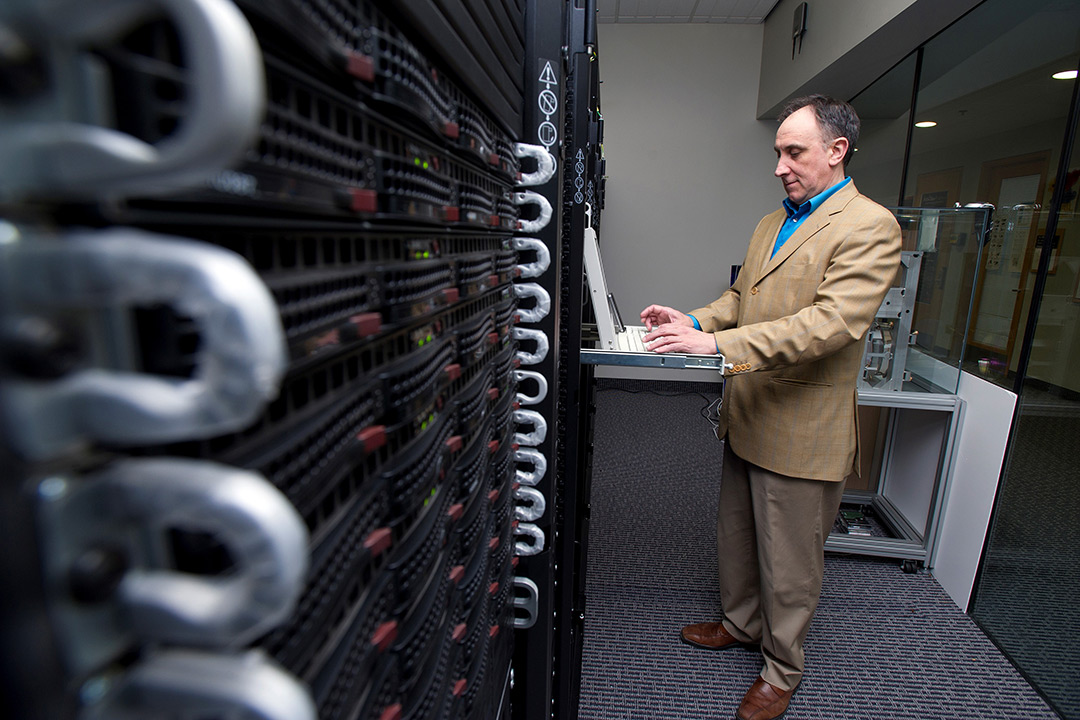Professor Lousto recognized as outstanding physicist diversifying the field
Lousto received the 2019 Edward A. Bouchet Award from the American Physical Society
A. Sue Weisler
The American Physical Society is recognizing RIT Professor Carlos Lousto for significant contributions to physics research and the advancement of underrepresented minority scientists.
The American Physical Society (APS) is recognizing Rochester Institute of Technology’s Carlos Lousto for significant contributions to physics research and the advancement of underrepresented minority scientists. Lousto, a professor in Rochester Institute of Technology’s School of Mathematical Sciences and co-director of the Center for Computational Relativity and Gravitation (CCRG), will receive the 2019 Edward A. Bouchet Award.
The award recognizes a distinguished minority physicist who has made significant contributions to physics research and the advancement of underrepresented minority scientists. The APS recognized Lousto “for contributions to both numerical relativity, conducive to the solution of the binary black hole problem, and the understanding of the first detection of gravitational waves and service to the Hispanic scientific community, including the establishment of the Center for Gravitational Wave Astronomy, the University of Texas at Brownsville in 2003.”
Lousto will receive the award during an award ceremony on April 14 at the APS April Meeting in Denver. As part of the award, Lousto will receive funding to deliver talks at academic institutions to help more minority students to succeed in the field.
“I have thrived for excellence since I was an undergraduate student and continue to do so as a professor and researcher at RIT,” said Lousto. “As a first-generation university student, I see this award as an encouragement to members of underrepresented communities that like me at the time are now looking for an opportunity to achieve their dreams.” Lousto added that from his first RIT advisee to his recent top students, “I have tried to convey students this idea of hard work to achieve high ideals.”
Lousto joined RIT in 2007 as a founding member of the CCRG. He is a fellow of the American Physical Society and a member of the LIGO Scientific Collaboration. Lousto, who received a Ph.D. in astronomy from the University of La Plata and a Ph.D. in physics from the University of Buenos Aires, conducts research in numerical relativity, relativistic astrophysics, black hole physics and perturbation theory. Lousto is a key author of the 2005 breakthrough research on binary black hole simulations. His research discovered that supermassive black holes can be ejected from most galaxies at speeds of up to 5000km/s. He is also the designer of the NewHorizon and BlueSky supercomputer clusters at RIT to perform binary black hole simulations, and the Funes cluster at the University of Texas as Brownsville.













